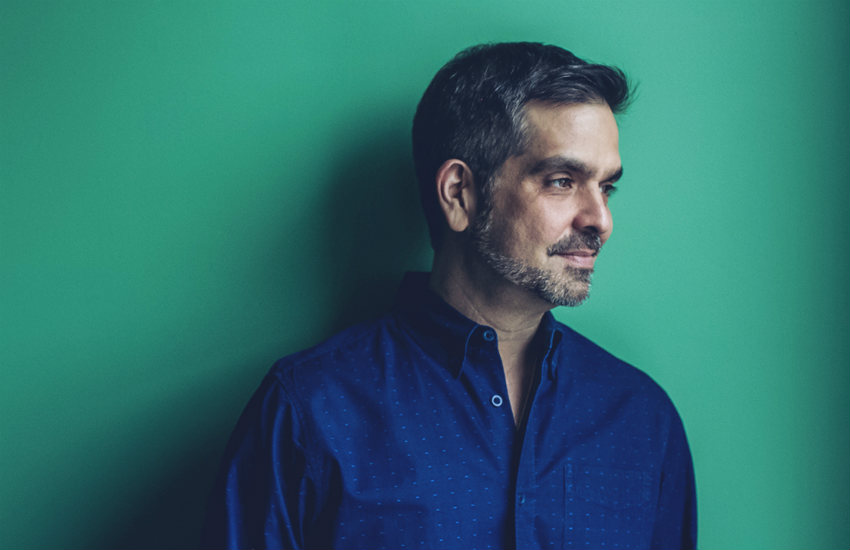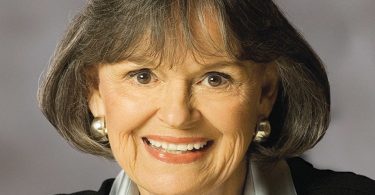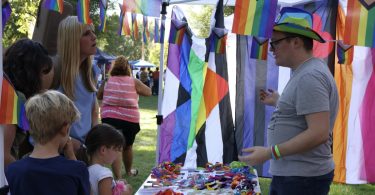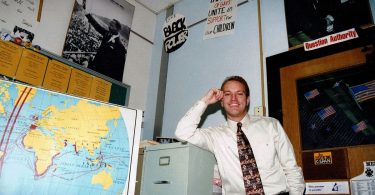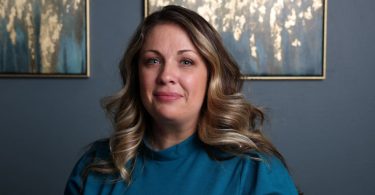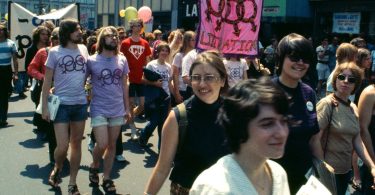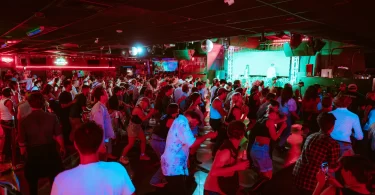A survey in the US has found that most gay men over the age of 45 are single.
The findings were released in March by AARP (formerly American Association of Retired Persons). It surveyed 1,782 LGBT people across all 50 US states on their thoughts around aging.
It found 57% of gay men over the age of 45 were single. This compared to 39% of lesbians and 48% of bisexual men and women.
‘There’s more gay men in successful relationships than ever before but these stats don’t surprise me,’ says Matthew Todd, a British journalist and the author of Straight Jacket, How to Be Gay and Happy.
‘Of course, it’s perfectly fine to be single if that’s what you want but I’ve met so many single gay men who say they really just want to be in a serious relationship but can’t find one.’
‘Gay men more likely to live alone’
The AARP survey didn’t primarily look at relationship status. It was more concerned at identifying the challenges people face as they get older.
It revealed concern among both lesbians and gay men about the support networks they might have as they age, but, ‘gay men are far more likely to live alone’ and ‘gay men are less connected compared to lesbians on every relationship type tested, from LGBT friends to straight friends, from partners to neighbors.’
When asked about the wide discrepancy between the number of older gay men and lesbians in partnerships, AARP indicated this was unsurprising. According to a spokesperson, the discrepancy exists across ages and is not particular to people over the age of 45.
They pointed to a 2017 LGBT survey done by Community Marketing & Insights (CMI). This surveyed over 17,000 participants and found the 69% of millenial gay and bisexual men are single. This compared with 54% for millennial lesbian and bisexual women. Similar results came up for Generation X (those born between the late 60s and early 80s).
However, although people of all sexualities start out single, lesbians, bisexual and heterosexuals tend to go on a find long-term partners. Many gay men, at least from these studies, do not.
How does this compare to straight people?
The last US census took place in 2010, before the legalization of same-sex marriage across the country.
Again, it shows younger people are far more likely to be single. Only one in three millennials marry by the time they’re 30. However, the rate rises consistently after this – and more than two out of three marry by the age of 50.
The AARP survey is not the first to reveal older gay men are more likely to be single. Research published in 2011 by UK organization Stonewall found that gay and bisexual men over 55 are ‘almost three times more likely to be single than heterosexual men, 40 per cent compared to 15 per cent.’
Such studies only ever offer a snapshot of a moment in time. Some older gay men who are currently single could be between partners. Or they’ve have enjoyed decade-long relationships with former loves.
But given the consistency of such studies, what are the reasons gay men are disproportionately likely to be unhitched compared to heterosexuals, bisexuals and lesbians? GSN asked some experts for their thoughts.
We’re taught to feel shame about our feelings
Finding and nurturing a relationship is hard. How much harder is it when society provides you with little but heterosexual role models? Or if displaying signs of affection to your partner in public prompts anxiety?
‘Growing up gay in our society can cause a deep wound to our self-esteem,’ says Todd. ‘Really opening up to another person, beyond a physical level, means allowing someone to connect with that. If that part of us has been shamed and we’ve locked it away then that is scary. That’s been my experience.
Men, for many reasons, are often less likely to talk about their feelings. However, bottling them up is nearly always counter productive.
‘After a bad relationship, I got hooked in a merry go round of casual sex to numb the feeling I wasn’t good enough,’ says Todd.
‘When it comes to numbing pain, sex is just as powerful as alcohol or drugs. It’s fun – but when we wake up and realize we’ve been single for ten years and haven’t got anyone to snuggle with on a Sunday morning, that’s really painful.
‘So to numb that pain you go on Grindr and off we go again. It’s still an issue for me. There’s so many of us out there soothing trauma with casual sex that you can forget what you really wanted in the first place.’
Dr Tony Ortega (Photo: Supplied)
The easy availability of sex is not conducive to settling down
Someone else who highlights the influence of apps is pyschologist Tony Ortega, author of #IsHeHereYet, Being the Person You Want to be With.
‘The overarching influence of dating and sex apps, such as Grindr, cannot be overlooked in this discussion. A possible reason why the relationship status gap exists in the gay community may be due to the ability to fire up this lovely app (or any other) and bam, there is the next best option 634 feet away.
‘When our options are so easily accessible and there is a large variety, isn’t it hard to commit to just one thing?
‘We may have spent so much time being promiscuous that we have forgotten how to date or even to get to know someone other than top, bottom or verse. I am not judging apps and/or promiscuity as I have been very guilty of both, however, it does tend to dampen authentic relationship building skills.’
Of course, rather than there being too much choice, we can also fall victim to there being not enough choice.
It’s a fact that there are less gay people than there are straight people. This may not play such a role in urban hotspots, but if you live in a rural area then your chances of meeting a compatible partner will inevitably be less. In these circumstances, internet dating and apps have proved a huge benefit.

Husbands David Furnish and Elton John are one of the most high-profile gay, married couples in the world (Photo: @eltonjohn | Instagram)
The notion of same-sex marriage is relatively new
Jeff Levy is a psychotherapist based in Chicago. He is the co-founder of Live Oak, Inc. He believes a multitude of factors are at play and gives examples from the clients he has met over the years [their names and identities changed].
‘Christian is a 58-year-old, HIV positive, single gay man. His health was seriously impacted by HIV many years ago and remains compromised. He lost many friends to AIDS in the ‘80s and ‘90s and while he continues to work, he has been traumatically impacted by HIV, seeing himself as irrevocably damaged by tangible and intangible losses.
‘Tom is a 60 year old, single gay man who lost two partners in his lifetime (neither to HIV). While he desires a relationship, he is hesitant to date. He has several close friends with whom he spends a great deal of his non-work time. He accepts his identity as a “widower.”
‘Robert is a 54 year old single gay man who has never been in a relationship. He was teased relentlessly as a child because of gender non-conforming behavior, and carries with him a significant sense of internalized homophobia. He finds himself only attracted to “straight acting men,” who often actually identify as heterosexual. Robert has used a number of dating and hook-up apps, but none has resulted in any serious dating.
Coming out later in life
‘Rick, 48, is a single gay man who was married to a woman for 25 years. Coming out at 46, he struggled with integrating his gay identity with his identities as father and husband. He experiences discrimination in the “gay world” for not being “gay enough,” and discrimination in the “straight world,” for not being “straight enough.”
‘John is a 64 year old single gay man who came out later in life and just as medication for HIV was changing. While he dated a great deal after initially coming out, as he got older and his health and body began to change, he increasingly experienced himself as undesirable, saying that “in the gay world, growing older is like being cursed.”
‘With all of these men’ says Levy, ‘there is also a generational component of what it meant to be born in the 1950s and 1960s when no role models for gay relationships existed and the idea of gay marriage wasn’t even a blip on the radar.
‘While younger gay men today can experience marriage as a viable option (something that in some ways “validates” the idea of long-term same-sex commitment), gay men of prior generations had no such validation and no such hope as they navigated the coming out process and the process of relational exploration.
‘Of course,’ he adds, ‘such validation of same-sex relationships also applies to lesbians as well.’
He’s keen to point out there are other influences that can impact relationship status, including ‘race, culture, religion, geography, and SES (socio-economic status), to name only a few.’
The impact of AIDS and HIV
Levy touched upon HIV as one factor. Thousands of gay men lost their lives to AIDS in the 80s, 90s and 00s (less so today but it still occurs).
Some men lost partners who they might still be with were it not for a virus that disproportionately affected gay male communities. Fear of HIV has also impacted on our approach to intimacy.
‘AIDS decreased our cohort a great deal up until recently: there are fewer gay men around over 45 because of that,’ says Michael Dale Kimmel, a psychotherapist based in San Diego and the author of The Gay Man’s Guide to Open and Monogamous Marriage.
Gay men find it easier to live alone
Kimmel also has thoughts on the disparity with lesbians. He says that ‘deeply-rooted societal misogyny’ may be a factor.
‘I think it’s financially much easier for men to live alone, since we’re paid more. I also think that it’s easier for men to live alone and find sex, as a single person, than it is for single lesbians. Thus, we have fewer obstacles than lesbians. We also have easier access to sex than single straight men. At least, from what I observe.’
Kimmel suggests that more older gay men are single because they’re more discerning than their younger counterparts: ‘and “picky”, which is, overall, a good thing.
‘But, it does make it harder to find a good match. We’re going for quality, not quantity, as was more common when we were younger.’
Why settle for one primary relationship?
Kimmel also believes gay men want to take advantage of enjoying greater variety in their sex life – in experiences and partners. Some men simply don’t feel the need to choose one partner only.
‘A lot of older gay men don’t want life partners.
‘They are content with their friendship networks and their friends with benefits, and commitment to one man doesn’t seem appealing. I certainly see that in my client and friendship circles.
On a controversial but upbeat note, he suggests the higher rates of singledom shows gay men are not so wedded (pun intended) to the traditional concept of partnership.
‘Many queer men don’t want to be in a relationship, especially a committed, monogamous one, like marriage. Monogamy is seen by many as a heterosexist institution, one that many of us do not want to emulate.
‘Many gay men want to create something different and better than heterosexual models of partnership and marriage … and we are!’
What do you think more gay men are single? Comment below
See also
At what age does a gay man give up looking for love and resign to being single forever?
The gay community has to get over its unhealthy addiction to drugs

